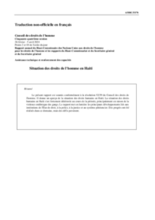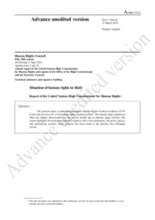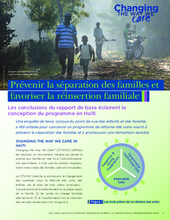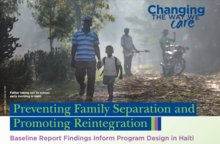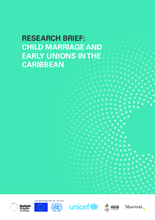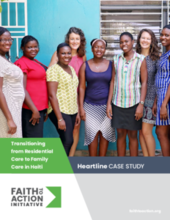childrens_living_arrangement
children_living_without_bio
Displaying 11 - 20 of 104
Le présent rapport est soumis conformément à la résolution 52/39 du Conseil des droits de l'homme. Il donne un aperçu de la situation des droits humains en Haïti. La situation des droits humains en Haïti s'est fortement détériorée au cours de la période, principalement en raison de la violence endémique des gangs. Le rapport met en lumière les principaux développements liés aux institutions de l'État de droit, à la police, à la justice et au système pénitencier. Des progrès ont été réalisés dans ce domaine, mais des défis persistent.
This report provides an overview of the human rights situation in Haiti which has sharply deteriorated over the period, mainly due to endemic gang violence. The report highlights the main developments related to rule of law institutions, the police, justice, and penitentiary systems.
As police and gangs battle it out in the streets of Haiti almost everyday, NBC News' Ellison Barber takes a deeper look into the conditions of orphanages there. The orphanage resides in an area where you don't hear gunfire, and where there is more optimism.
A new report by the UN describes the "outrageous practices" used by gangs in Haiti to brutalise, punish and control the civilian population. It says that the gangs, which are estimated to control more than 80% of the capital, Port-au-Prince, recruit and abuse children, sometimes killing those who try to escape. UN Human Rights chief Volker Türk chief said the situation was "cataclysmic".
Prévenir la séparation des familles et favoriser la réinsertion familiale est une enquête de base menée par Changing the Way We Care Haïti visant à informer la conception d'un programme de réforme des soins axé sur la prévention de la séparatio
This is a comprehensive baseline survey by Changing the Way We Care Haiti aimed at informing the design of a robust care reform program focused on averting family separation and fostering sustainable reintegration.
This research brief summarizes what is already known about child marriage and early unions (CMEUs) in the Caribbean, complemented by the findings of research commissioned by UNICEF in the framework of the Spotlight Initiative Caribbean Regional Programme and conducted in six Caribbean countries: Antigua and Barbuda, Belize, Guyana, Haiti, Suriname and Trinidad and Tobago.
Ce Guide Technique pour la Réintégration Familiale en Haïti se veut un guide pratique pour les travailleurs sociaux de l’Etat, des Organisations de la Société Civile et des ONG travaillant avec les enfants séparés de leurs familles et placés en Maison d’Enfants ou en d’autres dispositifs de protection de remplacement en Haïti.
This is a practical guide for the social workforce from the State, Civil Society Organisations and NGOs working with children separated from their families and being placed in residential care institutions or in other forms of alternative care in Haiti. This ISS publication draws on case studies and best practices from various experiences in Haiti and abroad in the field of family reintegration.
The story of Heartline’s transition from residential care to family care is told in this recently released Faith to Action case study. The case study details their experience through three stages of transition—learning, preparation and planning, and full transition—with transparency. It addresses common challenges for transitioning organizations, as well as the strategies Heartline took to overcome them.

